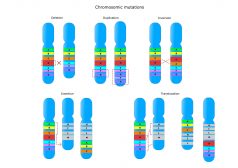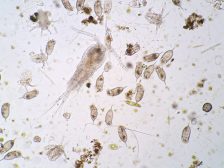Definition
noun
(general) The act or process of making neutral.
(chemistry) A chemical reaction in which an acid and a base or alkali react to yield a salt and water.
(immunology) The process of neutralizing a pathogen by antibody acting on the receptors or specific antigen.
Supplement
In immunology, neutralization happens when antibodies bind to specific antigens, blocking the pathogen from entering their host cells.
Alternative form: neutralisation.
See also: neutralizing antibody.
Dictionary > Neutralization
You will also like...

Genetics and Evolution
Humans are diploid creatures. This means that for every chromosome in the body, there is another one to match it. Howeve..

Chromosome Mutations
Mutations can also influence the phenotype of an organism. This tutorial looks at the effects of chromosomal mutations, ..

Insects
There are more species of insects than any other species combined. This surely illustrates that insects have the selecti..

Freshwater Communities & Plankton
Planktons are microscopic organisms that live suspended in aquatic habitats. There are two groups: the phytoplanktons an..

The Conscious & Unconscious Nervous System
This tutorial elaborates on how the nervous system works, particularly at the tissue level of the brain. There are three..

Evolution of Life – Ancient Earth
Autotrophs flourished, absorbing carbon and light. Soon after, primitive life forms that could assimilate oxygen thrived..

